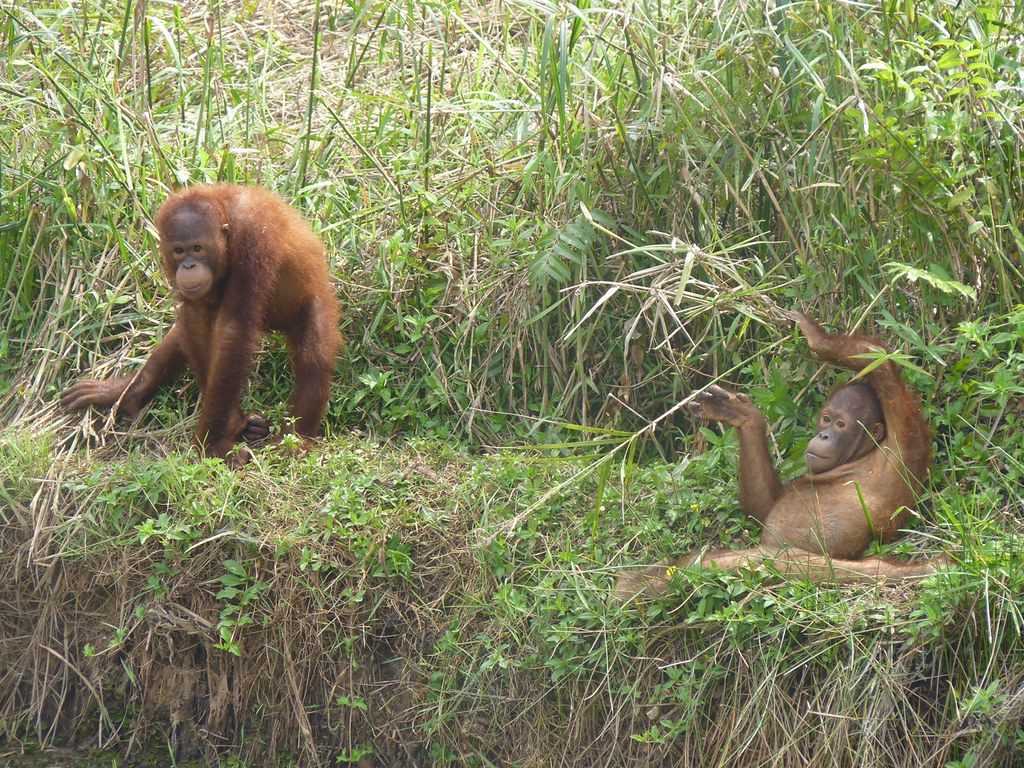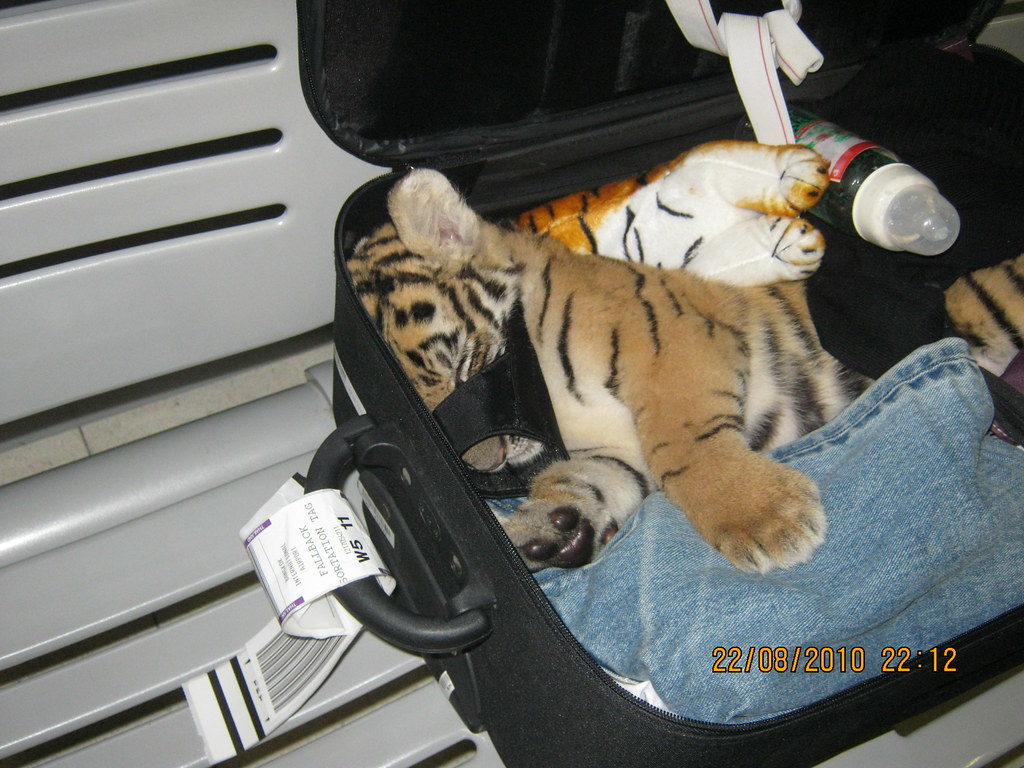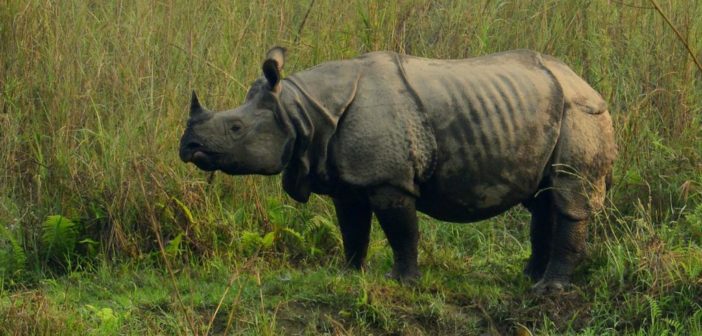More action and less talk is required to combat wildlife crime. Many species are becoming severely depleted and may disappear if more is not urgently done by governments.
High value seizures of contraband ivory, rhino horn, tiger parts and pangolin scales dominate media headlines every week. Many live animals and their parts are traded with impunity: tigers, orangutans, pangolins, monkeys, birds, and many more. Asia, particularly China and Southeast Asia, are the main points for the supply and demand of many endangered wildlife species.

Young orangutans playing. Orangutans are one of the many species currently threatened by unchecked wildlife crime. Image credit Wolf Gordon Clifton / Animal People, Inc.
Despite national rules and regulations related to wildlife conservation, as well as international commitments, widespread illegal wildlife trade is still continuing. Illegally poached wildlife is sold in source countries or trafficked across borders and sold both openly and covertly. Much of this trade goes on undetected, so it is difficult to quantify the enormous extent of illicit wildlife shipped and sold internationally.
An increase in seizures does not necessarily mean that law enforcement and customs officials are more alert or effective. Instead it often means that there has been an increase in smuggling and that illegal products are flooding borders and ports. Currently there is more demand for wildlife products than there is supply.

This drugged two-month-old tiger cub was found being smuggled in luggage at a Thai airport in 2010. This rescue was an example of successful enforcement, but unfortunately many more wildlife crimes continue unabated. Image credit USAID Biodiversity & Forestry, CC BY-SA 3.0.
All key countries in Southeast Asia are already signatories to international conventions on transnational crime and wildlife trafficking. They are also members of international enforcement agencies and networks, such as the Association of Southeast Asian Nations Wildlife Enforcement Network (ASEAN-WEN). Many of the tools for turning the tide against wildlife crime already exist, but there is still an urgent need for rapid high-level commitment to real action in order to change the current high profit-low risk nature of wildlife crime.
Additionally, companies that facilitate the import, transit, and export of goods must focus on stronger enforcement measures and tougher restrictions to prevent and penalize the abuse of their services for illicit wildlife trafficking. Trade kingpins are often involved in multiple businesses, both legal and illegal, and must be monitored. Pet shops and zoos must be thoroughly vetted and investigated, as some are fronts for illegal activities. Investigations must be conducted into illicit income streams related to individuals and companies suspected of involvement in wildlife trafficking, money laundering and other related crimes. Corruption in enforcing agencies is also a major concern and a barrier to fighting wildlife crimes.
In combating wildlife trafficking, Association of Southeast Asian Nations (ASEAN) member countries must make a much stronger commitment to addressing wildlife crime as a serious form of transnational organized crime, and must scale up efforts to combat it. Equally important is strong collaboration across source, transit and destination countries to ensure that criminal activities along the entire enforcement chain are addressed and neutralized from source to final destination.
Featured image: a rhinoceros in India’s Chitwan National Park. The greatest threat to this species is paching driven by demand for rhino horn. Image credit Michael McDonough, CC BY-SA 3.0.





